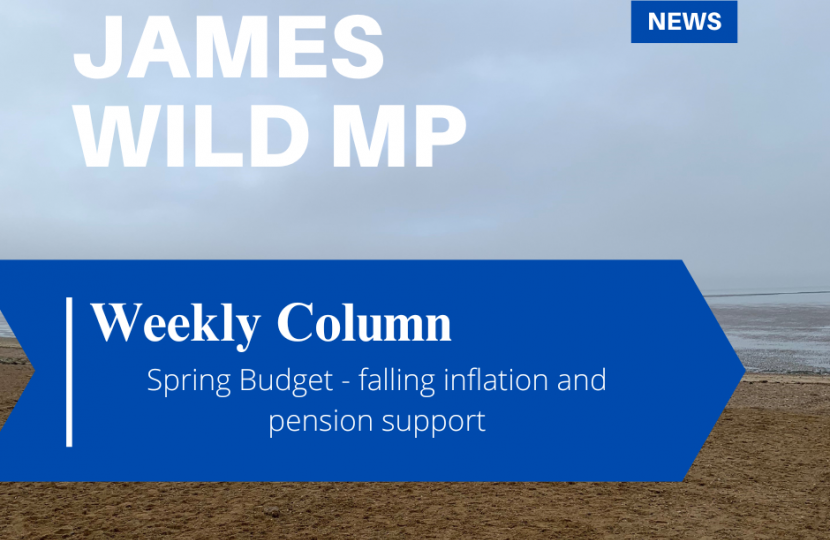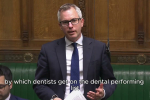
Weekly Column
It is encouraging that latest figures show inflation falling again opening up prospects of interest rate cuts, the economy grew in January, and there are more than 4 million people in work than in 2010. Measures in the spring Budget will help bring more people into work and cuts in national insurance will mean people keeping more of the money they earn.
As the economy turns a corner, the forecasts for 2025 to 2028 show GDP per capita increasing every year, average earnings increasing every year in real terms, and productivity increasing in real terms.
Since the Budget, as well as the tax cuts for workers and motorists, I have also been contacted by some constituents regarding pensions so I thought it would be worth looking at the measures in place to ensure dignity in retirement.
At the heart of the government’s plans is the Triple Lock – this means that pensions rise by whichever is higher of inflation, wages, or 2.5%. It was introduced by a Conservative government to avoid the scandalous example under the last Labour government of a derisory 75p increase.
What does that mean for millions of pensioners? In April, the state pension will increase by 8.5% this year, after an increase of 10.1% last year, meaning that it will be £3,200 higher in cash terms than it was in 2010. The increase in a few weeks will be worth £900 more a year for someone getting the full rate and comes with inflation forecast to return to its 2% level in a few months.
Targeting support to help the most vulnerable is a key part of the government’s approach. A Resolution Foundation report post-Budget said that “‘Pensioners used to be by far the most likely to be in poverty…now they are the least likely.” Indeed, since 2010 there are 200,000 fewer pensioners living in absolute poverty after housing costs.
Regarding tax, this Government has nearly doubled the personal allowance since 2010, ensuring that most of the lowest earners do not pay income tax. As a result, around 30% of individuals do not pay income tax – including pensioners solely reliant on the state pension.
However, one of the issues that I would like to see considered as part of future budgets is increasing the personal allowance tax threshold so that fewer pensioners on modest pension income from state and private pension have to pay income tax.
As well as the state pension, there is other support for pensioners including nearly 12 million Winter Fuel Payments and Pensioner Cost of Living Payments made this winter, helping to protect the most vulnerable. These payments provide vulnerable households up to £600 to help with their energy bill this winter. There is also pension credit which can also unlock a range of other support and I encourage people who think they may qualify to check.
As I said in the House of Commons, pensioners can be reassured that the Government have their back and we will continue to provide dignity for them in retirement.
First published in Lynn News, 22 March 2024


